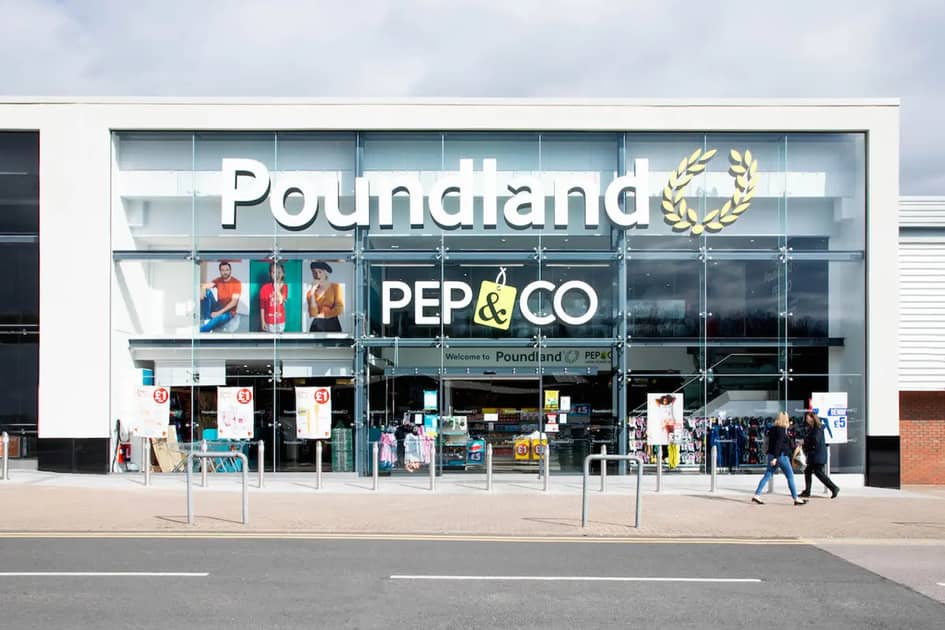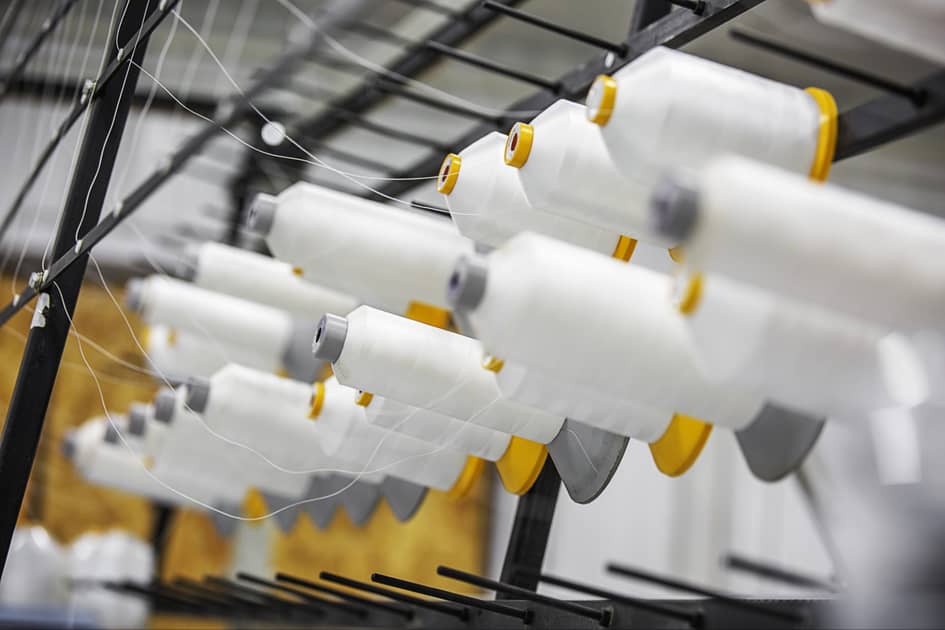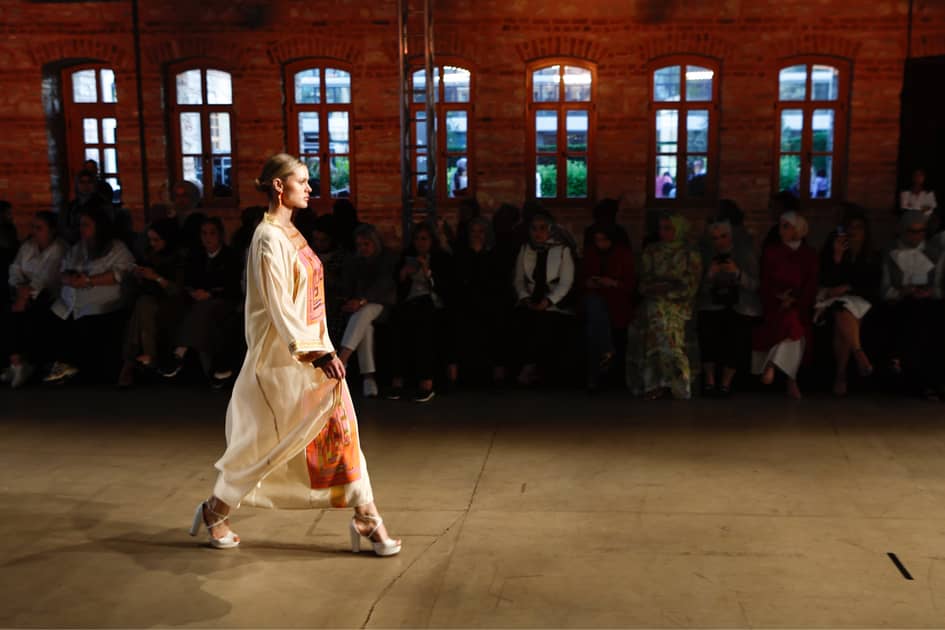Poundland, Pepco Credits: Pepco
European discount conglomerate Pepco Group has reported its interim results for the six-month period ended March 31, 2024, during which time it saw revenues rise 13.8 percent year-on-year to hit 3.2 billion euros.
While the group itself welcomed positive results for the business as a whole, with group EBITDA up 28.2 percent and gross margin sitting at 43.1 percent, its experience with the UK-based Poundland was less optimistic.
Despite seeing “good potential” in the discount space, reflected in the opening of 81 stores during the half year period, Poundland reported a “mixed performance” in its conversions, caused by the large-scale transitions into former Wilko stores and the scale of sales throughout Christmas.
The retailer’s revenues, however, grew by 5.3 percent to 1,054 million euros, alongside a gross margin that remained largely flat at 38.8 percent despite forecasted improvements. EBITDA dropped to 42 percent, due to impact from higher labour costs and an increase in store numbers.
In addition to this, there has also been a lacklustre response to the introduction of Pepco-sourced clothing, which debuted in Poundland stores in September 2023, and has since failed to replicate the previous depth and range of Poundland’s previous ranges, resulting in lower like-for-like revenues in the clothing category.
Pepco CEE hailed ‘standout performer’ as EBITDA returns to pre-Covid levels
Pepco said it anticipates this transitional issue to continue during FY24, with an improved trajectory of Poundland’s clothing performance expected to come in the second half of the year.
This was touched upon in a statement from executive chair of Pepco Group, Andy Bond, who said: “Despite a positive [fast-moving consumer goods (FMCG)] contribution, Poundland’s performance was behind expectations due to challenges in implementing the significant range change to Pepco products, which we are addressing.”
Elsewhere, the group was more optimistic, particularly towards its efforts to rebuild profitability in its core Central and Eastern European (CEE) business, which achieved its target of rebuilding Pepco CEE 4 wall EBITDA back to pre-Covid levels, driven by a strong recovery of its gross margin, among other initiatives.
As such, Bond labelled the category as the “standout performer” for the period, highlighting its progress against strategic priorities while noting that there were further opportunities for improvement.
The Pepco retailer itself saw revenue rise 16.3 percent as a result of its 627 plus new stores, while gross margin now sits at 45.5 percent, up from the prior 40.7 percent.
http://dlvr.it/T7MzCn
Women shirts & amp; Pajamas and versatile Fashion of Amazon and Alibaba., fashion, Facebook,youtube, instagram, tweeter and google
Saturday, May 25, 2024
Friday, May 24, 2024
Former Gildan CEO reinstated as entire board exits
Standort von Gildan Activewear in Honduras Credits: Gildan Activewear
Following a campaign by activist investors to regain control of the company, all board members of Gildan Activewear have now stepped down and are to be replaced by an eight-member slate of directors proposed by shareholder Browning West.
It puts into place a proposal introduced by the investment firm, which owns around 5.7 percent of the company’s outstanding shares, to add Michael Kneeland, Michener Chandlee, Ghislain Houle, Mélanie Kau, Peter Lee, Karen Stuckey and J.P. Towner to Gildan’s board, as well as reinstate former CEO Glenn Chamandy to the helm position.
Browning had initially aired its frustration at Chamandy’s termination after he was replaced by Vince Tyra towards the end of 2023, warning Gildan that if it did not correct its missteps it intended to requisition a special meeting to reconstitute the board.
While the proposal had received support from other shareholders, Gildan refused to act on the request, stating that Chamandy had “worked to entrench himself as CEO”, a claim that was later disputed by Chamandy, who noted he was not involved in the board’s handling of a succession plan.
Vince Tyra steps down from helm
As such, Browning filed a lawsuit against the company, alleging that it had pursued a “strategy of entrenchment, obfuscation and disparagement of dissenting shareholders” while making “value destructive decisions” and contradictory statements regarding Chamandy’s exit.
Despite this, Gildan’s board continued to pursue a potential takeover bid against the will of Browning and other shareholders as well as a strategy outlined by Tyra and a reshuffling of its board.
Now, however, with the revelation of an entirely new board to be put into place, it appears that Browning and its peers have come out on top, with Tyra terminated and other executives to step down.
Commending Chamandy and noting the scale of the reconstitution aside other investors, Usam Nabi and Peter Lee of Browning said in a joint statement: “We are deeply grateful for the outpouring of support that Browning West’s slate and plan have received from our fellow shareholders, Gildan employees, and leading proxy advisory firms.
“While we are disappointed that the board ignored the clear will of its shareholders for so many months and spent tens of millions of shareholder capital in an effort to defend its mistakes, we are nevertheless gratified that the current board has decided to cease its campaign activities and pave the way for an orderly and conclusive leadership transition.”
http://dlvr.it/T7Ktdw
Following a campaign by activist investors to regain control of the company, all board members of Gildan Activewear have now stepped down and are to be replaced by an eight-member slate of directors proposed by shareholder Browning West.
It puts into place a proposal introduced by the investment firm, which owns around 5.7 percent of the company’s outstanding shares, to add Michael Kneeland, Michener Chandlee, Ghislain Houle, Mélanie Kau, Peter Lee, Karen Stuckey and J.P. Towner to Gildan’s board, as well as reinstate former CEO Glenn Chamandy to the helm position.
Browning had initially aired its frustration at Chamandy’s termination after he was replaced by Vince Tyra towards the end of 2023, warning Gildan that if it did not correct its missteps it intended to requisition a special meeting to reconstitute the board.
While the proposal had received support from other shareholders, Gildan refused to act on the request, stating that Chamandy had “worked to entrench himself as CEO”, a claim that was later disputed by Chamandy, who noted he was not involved in the board’s handling of a succession plan.
Vince Tyra steps down from helm
As such, Browning filed a lawsuit against the company, alleging that it had pursued a “strategy of entrenchment, obfuscation and disparagement of dissenting shareholders” while making “value destructive decisions” and contradictory statements regarding Chamandy’s exit.
Despite this, Gildan’s board continued to pursue a potential takeover bid against the will of Browning and other shareholders as well as a strategy outlined by Tyra and a reshuffling of its board.
Now, however, with the revelation of an entirely new board to be put into place, it appears that Browning and its peers have come out on top, with Tyra terminated and other executives to step down.
Commending Chamandy and noting the scale of the reconstitution aside other investors, Usam Nabi and Peter Lee of Browning said in a joint statement: “We are deeply grateful for the outpouring of support that Browning West’s slate and plan have received from our fellow shareholders, Gildan employees, and leading proxy advisory firms.
“While we are disappointed that the board ignored the clear will of its shareholders for so many months and spent tens of millions of shareholder capital in an effort to defend its mistakes, we are nevertheless gratified that the current board has decided to cease its campaign activities and pave the way for an orderly and conclusive leadership transition.”
http://dlvr.it/T7Ktdw
LVMH Innovation Award 2024: Bernard Arnault prioritises AI with FancyTech
Morgan Mao and Bernard Arnault / VivaTech 2024 Credits: F. Julienne
On 23 May, at the VivaTech trade fair, the LVMH group awarded seven trophies to start-ups nominated for innovation prizes in various categories. Morgan Mao, founder of FancyTech, a Chinese company, received the grand prize from CEO Bernard Arnault himself.
"Make your dream a reality" was the motto of the ceremony, which was held to a full house at the VivaTech high-tech trade fair in Paris' Porte de Versailles and brought together the top figures of the LVMH group, including Gonzague de Pirey, director of omnichannel and data; Mathilde Delhoume, global brand director; Hélène Valade, director of environmental development; and Franck Le Moal, director of information systems and technology.
The dream has become reality for FancyTech, which has developed video production software using generative artificial intelligence (GenAl). The start-up, which also won the "Immersive Digital Experiences" award, was presented with the grand prize trophy, which arrived on stage in a Louis Vuitton Monogram mini-mall. Created by Dior and inspired by the concept of the LVMH stand at VivaTech, 'The Garden of Dreams', the trophy was designed to showcase the skills of Murano glass blowers combined with the capabilities of GenAl.
Bernard Arnault / VivaTech 2024 Credits: F. Julienne
Admittedly, Gen AI cannot create from scratch, but by using 3D modelling of products and prompts (creative briefs), it is now capable, thanks to FancyTech, of producing animated images without the need for a technical team. Asked on its stand by FashionUnited about the issues raised by rampant technology, which is disrupting working habits, the team replied that jobs are changing and that we need to accept AI as a tool to be even more creative.
http://dlvr.it/T7KtK7
On 23 May, at the VivaTech trade fair, the LVMH group awarded seven trophies to start-ups nominated for innovation prizes in various categories. Morgan Mao, founder of FancyTech, a Chinese company, received the grand prize from CEO Bernard Arnault himself.
"Make your dream a reality" was the motto of the ceremony, which was held to a full house at the VivaTech high-tech trade fair in Paris' Porte de Versailles and brought together the top figures of the LVMH group, including Gonzague de Pirey, director of omnichannel and data; Mathilde Delhoume, global brand director; Hélène Valade, director of environmental development; and Franck Le Moal, director of information systems and technology.
The dream has become reality for FancyTech, which has developed video production software using generative artificial intelligence (GenAl). The start-up, which also won the "Immersive Digital Experiences" award, was presented with the grand prize trophy, which arrived on stage in a Louis Vuitton Monogram mini-mall. Created by Dior and inspired by the concept of the LVMH stand at VivaTech, 'The Garden of Dreams', the trophy was designed to showcase the skills of Murano glass blowers combined with the capabilities of GenAl.
Bernard Arnault / VivaTech 2024 Credits: F. Julienne
Admittedly, Gen AI cannot create from scratch, but by using 3D modelling of products and prompts (creative briefs), it is now capable, thanks to FancyTech, of producing animated images without the need for a technical team. Asked on its stand by FashionUnited about the issues raised by rampant technology, which is disrupting working habits, the team replied that jobs are changing and that we need to accept AI as a tool to be even more creative.
http://dlvr.it/T7KtK7
Textile-to-textile recycling company Syre receives investment of 100 million dollars
Polyester threads on a spool. Credits: Syre
Fresh-faced recycling company Syre has raised an additional 100 million dollars in a new funding round, according to a press release.
The capital raised will be used to set up the first recycling and manufacturing facility in the US, which should be operationally active as early as the end of 2024.
In addition to this, the money will be used to prepare for setting up textile-to-textile recycling facilities worldwide and has further aided in Syre's purchase of patented technology for recycling, allowing post-consumer textile waste to be converted into circular polyester in a way that is rapidly scalable worldwide.
Syre reported in the release that it has its eye on Vietnam and Iberia, Spain, as locations for the facilities, adding: "Both regions are strategically positioned within the textile production chain and have a long history of a vibrant textile industry, with access to knowledge, supply and logistics alongside green energy."
Syre was founded by the H&M Group in partnership with Vargas Holding, with a focus on textile-to-textile recycling, specifically with polyester.
As such, the company hopes to discourage the use of virgin polyester and bottle-to-textile recycling. Notably, recycled polyester is now often made from plastic bottles, despite the bottle industry having its own circular system.
Recycled polyester has been under a magnifying glass for some time, but attention to it has been growing recently. Much of the recycled polyester used in the fashion industry comes from (collected) PET bottles. While PET bottles can be recycled over and over again, with current techniques recycled polyester typically cannot. This means that recycled polyester can only be downcycled after use.
http://dlvr.it/T7KXTf
Fresh-faced recycling company Syre has raised an additional 100 million dollars in a new funding round, according to a press release.
The capital raised will be used to set up the first recycling and manufacturing facility in the US, which should be operationally active as early as the end of 2024.
In addition to this, the money will be used to prepare for setting up textile-to-textile recycling facilities worldwide and has further aided in Syre's purchase of patented technology for recycling, allowing post-consumer textile waste to be converted into circular polyester in a way that is rapidly scalable worldwide.
Syre reported in the release that it has its eye on Vietnam and Iberia, Spain, as locations for the facilities, adding: "Both regions are strategically positioned within the textile production chain and have a long history of a vibrant textile industry, with access to knowledge, supply and logistics alongside green energy."
Syre was founded by the H&M Group in partnership with Vargas Holding, with a focus on textile-to-textile recycling, specifically with polyester.
As such, the company hopes to discourage the use of virgin polyester and bottle-to-textile recycling. Notably, recycled polyester is now often made from plastic bottles, despite the bottle industry having its own circular system.
Recycled polyester has been under a magnifying glass for some time, but attention to it has been growing recently. Much of the recycled polyester used in the fashion industry comes from (collected) PET bottles. While PET bottles can be recycled over and over again, with current techniques recycled polyester typically cannot. This means that recycled polyester can only be downcycled after use.
http://dlvr.it/T7KXTf
Coats Group delivers revenue increase of 7 percent
The Coats Group recorded organic revenue growth of 7 percent and reported growth of 4 percent against a weak prior year comparator.
The company said in a release that the improving trend was driven by apparel, where revenue was up 14 percent as customer inventories and buying patterns returned to more normalised levels. Footwear also returned to growth in the period, with revenue 6 percent higher year-on-year, as demand from several major brand customers picked up as their inventories also normalised.
The company added that performance materials trading in the period was in line with our expectations. The business continues to be impacted by US customer phasing issues, and reported revenue down 5 percent in the period but an improvement from a decline of 17 percent in FY23.
The company further said that it is on track to achieve overall savings of 70 million dollars by the end of 2024. These savings, along with focus on controlling costs, resulted in group adjusted EBIT margin to remain in line with the company’s 2024 goal of 17 percent.
Over the medium term, Coats remains confident in the group's ability to deliver strong profit growth and cash generation, owing to the company’s scale, global footprint, innovation, strong digital platform and technical support capabilities, alongside continued investment in sustainability and innovation.
http://dlvr.it/T7KXCC
The company said in a release that the improving trend was driven by apparel, where revenue was up 14 percent as customer inventories and buying patterns returned to more normalised levels. Footwear also returned to growth in the period, with revenue 6 percent higher year-on-year, as demand from several major brand customers picked up as their inventories also normalised.
The company added that performance materials trading in the period was in line with our expectations. The business continues to be impacted by US customer phasing issues, and reported revenue down 5 percent in the period but an improvement from a decline of 17 percent in FY23.
The company further said that it is on track to achieve overall savings of 70 million dollars by the end of 2024. These savings, along with focus on controlling costs, resulted in group adjusted EBIT margin to remain in line with the company’s 2024 goal of 17 percent.
Over the medium term, Coats remains confident in the group's ability to deliver strong profit growth and cash generation, owing to the company’s scale, global footprint, innovation, strong digital platform and technical support capabilities, alongside continued investment in sustainability and innovation.
http://dlvr.it/T7KXCC
Thursday, May 23, 2024
Despite Q1 sales decline, United Labels forecasts positive outlook
United Labels generated consolidated sales of 5.8 million euros in the first quarter.
The company said in a release that the decline in sales resulted from the distribution of customer campaigns before and after the reporting date.
Commenting on the financial results, Peter Boder, CEO of United Labels AG, said: “I am convinced that we have a strong remaining financial year ahead of us. This is already becoming apparent, particularly in e-commerce. I am therefore confident that we will exceed the previous year’s sales and earnings figures in 2024 as a whole.”
Despite these order postponements, a significantly higher gross profit margin led to EBITDA of 0.5 million euros and EBIT at 0.4 million euros, both at the previous year’s level.
Net profit for the first quarter was 0.3 million euros, which corresponds to a return on sales of 4.5 percent.
In the previous financial year 2023, United Labels generated sales of 24.8 million euros and EBITDA of 1.3 million euros.
United Labels develops, produces and distributes clothing, home textiles and gift items with brands such as Paw Patrol, Peppa Pig, Snoopy and Harry Potter.
http://dlvr.it/T7GyJL
The company said in a release that the decline in sales resulted from the distribution of customer campaigns before and after the reporting date.
Commenting on the financial results, Peter Boder, CEO of United Labels AG, said: “I am convinced that we have a strong remaining financial year ahead of us. This is already becoming apparent, particularly in e-commerce. I am therefore confident that we will exceed the previous year’s sales and earnings figures in 2024 as a whole.”
Despite these order postponements, a significantly higher gross profit margin led to EBITDA of 0.5 million euros and EBIT at 0.4 million euros, both at the previous year’s level.
Net profit for the first quarter was 0.3 million euros, which corresponds to a return on sales of 4.5 percent.
In the previous financial year 2023, United Labels generated sales of 24.8 million euros and EBITDA of 1.3 million euros.
United Labels develops, produces and distributes clothing, home textiles and gift items with brands such as Paw Patrol, Peppa Pig, Snoopy and Harry Potter.
http://dlvr.it/T7GyJL
LVMH strengthens partnership with Alibaba
LVMH celebrates diversity within its teams. Credits: LVMH Data Summit © ARR via LVMH.com
French luxury conglomerate LVMH Moët Hennessy Louis Vuitton has announced it is deepening its partnership with Chinese e-commerce and technology giant Alibaba to “redefine luxury retail experiences in China”.
In a statement, LVMH said the extended partnership aims to push the boundaries of the luxury experience in China by leveraging Alibaba’s cloud technologies through AI-powered innovations in retail and online with Tmall.
LVMH added that the strengthening of the partnership was a shared commitment from the two companies “to pioneer retail innovation and delivering exceptional, tech-driven luxury experiences,” while helping the French luxury group increase its omnichannel, data and tech presence in China.
Stephane Bianchi, group managing director of LVMH, said: “Alibaba is already a key partner for our Maisons and for the Group. The reinforcement of our partnership will help us to further accelerate our omni-channel business growth and to keep on leveraging the transformative capabilities of cloud and AI technologies, along with Alibaba’s world-leading expertise in e-commerce operations.
“Our forward-looking collaboration will deliver unparalleled experiences to our clients throughout their high-end shopping journey.”
The strategic partnership between LVMH and Alibaba started in 2019 and has seen LVMH implement Alibaba Cloud’s data management tool, Dataphin, to power ‘LVMH Atom’ China, a bespoke platform to deliver personalised services tailored to its expanding Chinese customer base. In addition, LVMH has leveraged Alibaba Cloud’s machine learning platform, PAI, to develop customised services that cater to the distinct tastes of Chinese consumers across all its brands.
LVMH looks to Alibaba to enhance luxury experience for Chinese shoppers
As part of the new deal, LVMH has begun integrating Alibaba Cloud's generative AI capabilities, including Qwen, Alibaba’s proprietary large language model, and Model Studio (Bailian), a comprehensive AI model-building platform.
It covers more than 30 brands and divisions within mainland China and Southeast Asia, including beauty retailer Sephora’s Asia-Pacific division and travel retail arm DFS, and will give LVMH access to a broader array of Alibaba Cloud's leading technologies and products to optimise its business operations, enhance customer insights, and streamline its supply chain management processes to address Chinese market.
Eddie Wu, chief executive officer of Alibaba Group, added: “Alibaba is pleased to enable a transformation of the high-end consumption experience with retail leaders like LVMH through our world-class technologies in cloud computing and AI.
“This comprehensive partnership has elevated the retail experience for LVMH’s customers worldwide, including China-based consumers on Tmall. We look forward to continuing to build on the strong partnership and innovation journey with LVMH.”
This announcement follows the recent debut of Tiffany’s and Chaumet on Alibaba’s Tmall Luxury Pavilion, which offers experiences such as 3D product displays, virtual try-ons, and livestreaming.
http://dlvr.it/T7Gy0p
French luxury conglomerate LVMH Moët Hennessy Louis Vuitton has announced it is deepening its partnership with Chinese e-commerce and technology giant Alibaba to “redefine luxury retail experiences in China”.
In a statement, LVMH said the extended partnership aims to push the boundaries of the luxury experience in China by leveraging Alibaba’s cloud technologies through AI-powered innovations in retail and online with Tmall.
LVMH added that the strengthening of the partnership was a shared commitment from the two companies “to pioneer retail innovation and delivering exceptional, tech-driven luxury experiences,” while helping the French luxury group increase its omnichannel, data and tech presence in China.
Stephane Bianchi, group managing director of LVMH, said: “Alibaba is already a key partner for our Maisons and for the Group. The reinforcement of our partnership will help us to further accelerate our omni-channel business growth and to keep on leveraging the transformative capabilities of cloud and AI technologies, along with Alibaba’s world-leading expertise in e-commerce operations.
“Our forward-looking collaboration will deliver unparalleled experiences to our clients throughout their high-end shopping journey.”
The strategic partnership between LVMH and Alibaba started in 2019 and has seen LVMH implement Alibaba Cloud’s data management tool, Dataphin, to power ‘LVMH Atom’ China, a bespoke platform to deliver personalised services tailored to its expanding Chinese customer base. In addition, LVMH has leveraged Alibaba Cloud’s machine learning platform, PAI, to develop customised services that cater to the distinct tastes of Chinese consumers across all its brands.
LVMH looks to Alibaba to enhance luxury experience for Chinese shoppers
As part of the new deal, LVMH has begun integrating Alibaba Cloud's generative AI capabilities, including Qwen, Alibaba’s proprietary large language model, and Model Studio (Bailian), a comprehensive AI model-building platform.
It covers more than 30 brands and divisions within mainland China and Southeast Asia, including beauty retailer Sephora’s Asia-Pacific division and travel retail arm DFS, and will give LVMH access to a broader array of Alibaba Cloud's leading technologies and products to optimise its business operations, enhance customer insights, and streamline its supply chain management processes to address Chinese market.
Eddie Wu, chief executive officer of Alibaba Group, added: “Alibaba is pleased to enable a transformation of the high-end consumption experience with retail leaders like LVMH through our world-class technologies in cloud computing and AI.
“This comprehensive partnership has elevated the retail experience for LVMH’s customers worldwide, including China-based consumers on Tmall. We look forward to continuing to build on the strong partnership and innovation journey with LVMH.”
This announcement follows the recent debut of Tiffany’s and Chaumet on Alibaba’s Tmall Luxury Pavilion, which offers experiences such as 3D product displays, virtual try-ons, and livestreaming.
http://dlvr.it/T7Gy0p
Grown Alchemist signs global partnership deal with Equinox
Beauty
Grown Alchemist global partnership deal with Equinox campaign image Credits: Grown Alchemist / Equinox
Beauty brand Grown Alchemist, which moved into privately held ownership in April to drive international growth, has signed an exclusive global partnership with fitness and lifestyle company Equinox.
The deal will see Grown Alchemist products, including the brand’s Energize Body Cleanser, Restorative Body Cream, Gentle Gel Facial Cleanser, Hydra-Restore Shampoo and Hydra-Restore Conditioner available in more than 100 Equinox clubs across major US cities, including New York, LA, Miami, and San Francisco as well as London, Toronto, and Vancouver.
In addition, the beauty brand will offer custom treatments at select Equinox Spa locations and introduce future exclusive offerings at The Shop at Equinox.
Julia Klim, vice president of strategic partnerships at Equinox, said in a statement: “Equinox’s partnership with Grown Alchemist underscores our collective efforts to deliver innovative, unparalleled products and experiences to our member community.
“Together, we will push the boundaries of full body performance through our shared commitment to longevity and full health optimisation.”
Grown Alchemist global partnership deal with Equinox campaign image Credits: Grown Alchemist / Equinox
Anna Teal, global chief executive at Grown Alchemist, added: “Grown Alchemist is an innovator of biotech beauty that is dedicated to creating formulas that are 100 percent compatible with skin and the environment.
“We are thrilled to be partnering with Equinox on this global venture and are excited to bring our pioneering advanced formulations to the Equinox experience and enhance their journey to maximise cellular potential inside and out.”
Founded in Australia in 2008, Grown Alchemist offers skincare, bodycare and haircare, utilising advanced plant and biotech ingredients that work in harmony with the skin’s own biology for better absorption and more powerful results. It also offers spa treatments and services that optimise skin function, including IV Infusion Therapy.
Grown Alchemist, headquartered in London, is sold in more than 40 countries and is available in retailers, including Sephora, Credo Beauty and five-star hotels and spas.
Grown Alchemist global partnership deal with Equinox campaign image Credits: Grown Alchemist / Equinox
http://dlvr.it/T7GxhF
Grown Alchemist global partnership deal with Equinox campaign image Credits: Grown Alchemist / Equinox
Beauty brand Grown Alchemist, which moved into privately held ownership in April to drive international growth, has signed an exclusive global partnership with fitness and lifestyle company Equinox.
The deal will see Grown Alchemist products, including the brand’s Energize Body Cleanser, Restorative Body Cream, Gentle Gel Facial Cleanser, Hydra-Restore Shampoo and Hydra-Restore Conditioner available in more than 100 Equinox clubs across major US cities, including New York, LA, Miami, and San Francisco as well as London, Toronto, and Vancouver.
In addition, the beauty brand will offer custom treatments at select Equinox Spa locations and introduce future exclusive offerings at The Shop at Equinox.
Julia Klim, vice president of strategic partnerships at Equinox, said in a statement: “Equinox’s partnership with Grown Alchemist underscores our collective efforts to deliver innovative, unparalleled products and experiences to our member community.
“Together, we will push the boundaries of full body performance through our shared commitment to longevity and full health optimisation.”
Grown Alchemist global partnership deal with Equinox campaign image Credits: Grown Alchemist / Equinox
Anna Teal, global chief executive at Grown Alchemist, added: “Grown Alchemist is an innovator of biotech beauty that is dedicated to creating formulas that are 100 percent compatible with skin and the environment.
“We are thrilled to be partnering with Equinox on this global venture and are excited to bring our pioneering advanced formulations to the Equinox experience and enhance their journey to maximise cellular potential inside and out.”
Founded in Australia in 2008, Grown Alchemist offers skincare, bodycare and haircare, utilising advanced plant and biotech ingredients that work in harmony with the skin’s own biology for better absorption and more powerful results. It also offers spa treatments and services that optimise skin function, including IV Infusion Therapy.
Grown Alchemist, headquartered in London, is sold in more than 40 countries and is available in retailers, including Sephora, Credo Beauty and five-star hotels and spas.
Grown Alchemist global partnership deal with Equinox campaign image Credits: Grown Alchemist / Equinox
http://dlvr.it/T7GxhF
Landlord GPE publishes ambitious net zero targets
New Bond Street, London. Credits: GPE
London property group Great Portland Estates (GPE) has updated its ‘Roadmap to Net Zero’ eco manifesto to include ambitious new carbon reduction targets and revised timescales.
GPE, which owns retail properties across Mayfair, Finsbury, Fitzrovia, Soho and Marylebone in London, said the updated roadmap was in response to what it calls “the increasing impact of global climate change, and the carbon reductions necessary to decarbonise the built environment”.
First launched in 2020, its original roadmap incorporated 60 percent of its footprint and envisaged a plan to reduce its carbon emissions by 50 percent by 2030, before offsetting the balance to net zero.
Its new ‘Net Zero 2.0’ plan incorporates the whole of its carbon footprint to ensure it is more closely aligned with the requirements of the SBTi Net Zero Carbon Standard and CRREM trajectories.
This includes “more ambitious” absolute emissions targets for Scope 1, 2 and 3 emissions, as it looks to reduce its emissions by 42 percent by 2030 and 90 percent by 2040, from its 2023 baseline.
It has also added “more challenging” embodied carbon and energy intensity reduction targets to reduce its embodied carbon by 52 percent, from its 2020 baseline, and reduce its energy intensity by 47 percent by 2030, from its 2016 baseline.
In addition, the plan includes new customer engagement and supply chain engagement targets to support faster Scope 3 emissions reductions; a new commitment to remove gas-fired boilers entirely from its buildings by 2030 “to ensure that all energy consumed at our buildings is fossil fuel free,” and an increase of its Internal Carbon Price from 95 pounds per tonne to 150 pounds per tonne.
Janine Cole, sustainability and social impact director at Great Portland Estates, said in a statement: “In updating our Roadmap to Net Zero, we have increased the ambition and scope of our net zero targets. We now know that if we are to reduce our emissions in line with climate science, we must reach nearly zero before offsetting the balance. Our updated roadmap now covers 100 percent of our carbon footprint and an absolute Scope 1, 2 and 3 emissions reduction target of 90 percent before becoming a net zero carbon business by 2040.
“We do not underestimate the challenge ahead and will need to be innovative, working in partnership with our entire value chain, embracing technology as it evolves, whilst further integrating the principles of the circular economy as we create the workspaces of tomorrow.”
http://dlvr.it/T7GxNN
London property group Great Portland Estates (GPE) has updated its ‘Roadmap to Net Zero’ eco manifesto to include ambitious new carbon reduction targets and revised timescales.
GPE, which owns retail properties across Mayfair, Finsbury, Fitzrovia, Soho and Marylebone in London, said the updated roadmap was in response to what it calls “the increasing impact of global climate change, and the carbon reductions necessary to decarbonise the built environment”.
First launched in 2020, its original roadmap incorporated 60 percent of its footprint and envisaged a plan to reduce its carbon emissions by 50 percent by 2030, before offsetting the balance to net zero.
Its new ‘Net Zero 2.0’ plan incorporates the whole of its carbon footprint to ensure it is more closely aligned with the requirements of the SBTi Net Zero Carbon Standard and CRREM trajectories.
This includes “more ambitious” absolute emissions targets for Scope 1, 2 and 3 emissions, as it looks to reduce its emissions by 42 percent by 2030 and 90 percent by 2040, from its 2023 baseline.
It has also added “more challenging” embodied carbon and energy intensity reduction targets to reduce its embodied carbon by 52 percent, from its 2020 baseline, and reduce its energy intensity by 47 percent by 2030, from its 2016 baseline.
In addition, the plan includes new customer engagement and supply chain engagement targets to support faster Scope 3 emissions reductions; a new commitment to remove gas-fired boilers entirely from its buildings by 2030 “to ensure that all energy consumed at our buildings is fossil fuel free,” and an increase of its Internal Carbon Price from 95 pounds per tonne to 150 pounds per tonne.
Janine Cole, sustainability and social impact director at Great Portland Estates, said in a statement: “In updating our Roadmap to Net Zero, we have increased the ambition and scope of our net zero targets. We now know that if we are to reduce our emissions in line with climate science, we must reach nearly zero before offsetting the balance. Our updated roadmap now covers 100 percent of our carbon footprint and an absolute Scope 1, 2 and 3 emissions reduction target of 90 percent before becoming a net zero carbon business by 2040.
“We do not underestimate the challenge ahead and will need to be innovative, working in partnership with our entire value chain, embracing technology as it evolves, whilst further integrating the principles of the circular economy as we create the workspaces of tomorrow.”
http://dlvr.it/T7GxNN
Charity retailers deserve support amid price criticism, says Chief Executive of Traid
Traid Charity shop Credits: Traid website
In recent weeks, charity retail has faced criticism for allegedly overcharging customers with inflated prices. This narrative overlooks the crucial role that charity shops play and misrepresents the sector, which has a long history of supporting vital causes. Maria Chenoweth, Chief Executive of charity retailer Traid, published a thought piece on on how clothing is priced within charity retail.
Charity retail, which dates back to 1870 with St Agatha’s flower shop in East London, has evolved significantly, Chenoweth says. From the Salvation Army stores aiding war veterans in the late 19th century to Oxfam’s extensive efforts starting in 1947, charity shops have raised essential funds for a diverse range of causes, including cancer research, homelessness, and educational support. These shops address gaps left by other systems, offering unparalleled contributions to society.
The sector now contends with the massive challenge posed by ultra-fast fashion, characterised by extremely low prices and unsustainable practices. Charity shops are often expected to offer even cheaper alternatives, despite the inherent sustainability and ethical advantages they provide. They aim to educate consumers about the negative impact of fast fashion while promoting the reuse and recycling of quality garments.
"The industry is being tasked to be the answer to a cost-of-living crisis and be cheaper than a fashion market flooded by ultra-fast-fashion brands drowning in 1 pound t-shirts and 3 pound skirts," says Maria Chenoweth. "What is being asked of charity retail? To mop up the fashion industry’s mess and sell for less than the cost of turning the electricity on? Educating people on why buying cheap, unethical, and hugely unsustainable clothing is the wrong choice? We maximise the potential of the clothes you no longer wear; demanding change from a throw away, fast fashion culture that continues to destroy this planet."
At Traid, where Maria Chenoweth has been chief executive sine 2003, garments are meticulously sorted, priced, and dispatched to ensure fairness and relevance to their market. Reducing prices, as some critics suggest, would undermine their ability to fund important causes. Instead, scrutiny should be directed at corporations driving up operational costs, thereby straining the resources available for charitable services.
Traid exemplifies the positive impact of charity retail
Dedicated to transforming the fashion industry, it funds global projects supporting garment workers, organic cotton farmers, and more. Their efforts have led to significant achievements, such as establishing free daycare centers in Bangladesh and securing Ethiopia’s first organic cotton certifications. By selling second-hand clothing, Traid has supported 700,000 garment workers, repurposed 233 million garments, and saved substantial amounts of CO2 and water.
Critics often overlook the motivations of charity retail workers, who are driven by personal connections to the causes they support and a commitment to maximizing funds for these causes. It's crucial to reassess charity retail's value, recognizing its contributions to sustainability, community support, and global impact.
For more information visit www.traid.org.uk.
http://dlvr.it/T7Gww9
In recent weeks, charity retail has faced criticism for allegedly overcharging customers with inflated prices. This narrative overlooks the crucial role that charity shops play and misrepresents the sector, which has a long history of supporting vital causes. Maria Chenoweth, Chief Executive of charity retailer Traid, published a thought piece on on how clothing is priced within charity retail.
Charity retail, which dates back to 1870 with St Agatha’s flower shop in East London, has evolved significantly, Chenoweth says. From the Salvation Army stores aiding war veterans in the late 19th century to Oxfam’s extensive efforts starting in 1947, charity shops have raised essential funds for a diverse range of causes, including cancer research, homelessness, and educational support. These shops address gaps left by other systems, offering unparalleled contributions to society.
The sector now contends with the massive challenge posed by ultra-fast fashion, characterised by extremely low prices and unsustainable practices. Charity shops are often expected to offer even cheaper alternatives, despite the inherent sustainability and ethical advantages they provide. They aim to educate consumers about the negative impact of fast fashion while promoting the reuse and recycling of quality garments.
"The industry is being tasked to be the answer to a cost-of-living crisis and be cheaper than a fashion market flooded by ultra-fast-fashion brands drowning in 1 pound t-shirts and 3 pound skirts," says Maria Chenoweth. "What is being asked of charity retail? To mop up the fashion industry’s mess and sell for less than the cost of turning the electricity on? Educating people on why buying cheap, unethical, and hugely unsustainable clothing is the wrong choice? We maximise the potential of the clothes you no longer wear; demanding change from a throw away, fast fashion culture that continues to destroy this planet."
At Traid, where Maria Chenoweth has been chief executive sine 2003, garments are meticulously sorted, priced, and dispatched to ensure fairness and relevance to their market. Reducing prices, as some critics suggest, would undermine their ability to fund important causes. Instead, scrutiny should be directed at corporations driving up operational costs, thereby straining the resources available for charitable services.
Traid exemplifies the positive impact of charity retail
Dedicated to transforming the fashion industry, it funds global projects supporting garment workers, organic cotton farmers, and more. Their efforts have led to significant achievements, such as establishing free daycare centers in Bangladesh and securing Ethiopia’s first organic cotton certifications. By selling second-hand clothing, Traid has supported 700,000 garment workers, repurposed 233 million garments, and saved substantial amounts of CO2 and water.
Critics often overlook the motivations of charity retail workers, who are driven by personal connections to the causes they support and a commitment to maximizing funds for these causes. It's crucial to reassess charity retail's value, recognizing its contributions to sustainability, community support, and global impact.
For more information visit www.traid.org.uk.
http://dlvr.it/T7Gww9
Tuesday, May 21, 2024
‘Metamorfosi’: Istituto Marangoni Miami goes global with first student fashion show
In Pictures
Istituto Marangoni inaugural student fashion show, May 2024. Credits: Image courtesy of IMM.
On Thursday May 16, fashion and design institution Istituto Marangoni Miami (IMM) presented its first student fashion show, which is now set to be an annual event to cement the status of the Miami school of fashion and its graduates on the world stage. Twenty students of this year's graduating class showcased 62 looks in total.
The physical runway show was entitled ‘Metamorfosi’, a name with which the US campus of Italian institution IM aimed to reflect ‘the transformation of IMM students as they transition from the academic environment to the global fashion stage,’ as per a press release sent out by the school.
A look by Daniel Uribe at the Istituto Marangoni inaugural student fashion show, May 2024. Credits: Image courtesy of IMM.
A look by Veronica Espinosa at the Istituto Marangoni inaugural student fashion show, May 2024. Credits: courtesy of IMM.
The students who showcased their designs hail from a variety of cultural backgrounds. Out of the 62 looks presneted in total, some students presented just one look, while other students had the opportunity to showcase five or six different creations.
A look by Michael Acierno at the Istituto Marangoni inaugural student fashion show, May 2024. Credits: courtesy of IMM.
A look by Chengi Jiang at the Istituto Marangoni inaugural student fashion show, May 2024. Credits: courtesy of IMM.
The graduating students of the IMM school of fashion and design who presented their designs are:
Anabel Montiel, Camila Francine Balleste, Chenqi Jiang, Daniel Uribe, Fabiana Polito, Ilayda Polat, Jancarlos Cruz, Julianna Suplicki, Karla Urdaneta, Michael Acierno, Paloma Racca, Paula Alduncin, Rene Mejia, Ryan Hamilton, Sofia Lemann, Taneika Gibson, Vanessa Lugbeit, Veronica Espinosa, Veronica Lam, and Victoria Sarmiento.
A look by Ryan Hamilton at the Istituto Marangoni inaugural student fashion show, May 2024. Credits: courtesy of IMM.
A look by Sofia Lemann at the Istituto Marangoni inaugural student fashion show, May 2024. Credits: courtesy of IMM.
A look by Anabel Montiel at the Istituto Marangoni inaugural student fashion show, May 2024. Credits: courtesy of IMM.
http://dlvr.it/T7C6qz
Istituto Marangoni inaugural student fashion show, May 2024. Credits: Image courtesy of IMM.
On Thursday May 16, fashion and design institution Istituto Marangoni Miami (IMM) presented its first student fashion show, which is now set to be an annual event to cement the status of the Miami school of fashion and its graduates on the world stage. Twenty students of this year's graduating class showcased 62 looks in total.
The physical runway show was entitled ‘Metamorfosi’, a name with which the US campus of Italian institution IM aimed to reflect ‘the transformation of IMM students as they transition from the academic environment to the global fashion stage,’ as per a press release sent out by the school.
A look by Daniel Uribe at the Istituto Marangoni inaugural student fashion show, May 2024. Credits: Image courtesy of IMM.
A look by Veronica Espinosa at the Istituto Marangoni inaugural student fashion show, May 2024. Credits: courtesy of IMM.
The students who showcased their designs hail from a variety of cultural backgrounds. Out of the 62 looks presneted in total, some students presented just one look, while other students had the opportunity to showcase five or six different creations.
A look by Michael Acierno at the Istituto Marangoni inaugural student fashion show, May 2024. Credits: courtesy of IMM.
A look by Chengi Jiang at the Istituto Marangoni inaugural student fashion show, May 2024. Credits: courtesy of IMM.
The graduating students of the IMM school of fashion and design who presented their designs are:
Anabel Montiel, Camila Francine Balleste, Chenqi Jiang, Daniel Uribe, Fabiana Polito, Ilayda Polat, Jancarlos Cruz, Julianna Suplicki, Karla Urdaneta, Michael Acierno, Paloma Racca, Paula Alduncin, Rene Mejia, Ryan Hamilton, Sofia Lemann, Taneika Gibson, Vanessa Lugbeit, Veronica Espinosa, Veronica Lam, and Victoria Sarmiento.
A look by Ryan Hamilton at the Istituto Marangoni inaugural student fashion show, May 2024. Credits: courtesy of IMM.
A look by Sofia Lemann at the Istituto Marangoni inaugural student fashion show, May 2024. Credits: courtesy of IMM.
A look by Anabel Montiel at the Istituto Marangoni inaugural student fashion show, May 2024. Credits: courtesy of IMM.
http://dlvr.it/T7C6qz
Shein reportedly approaches former UK chancellor ahead of IPO
Credits: Shein
Ahead of what is set to potentially be a major IPO filing, Shein is believed to have approached the UK’s Sajid Javid for a possible appointment to the Chinese fast fashion giant’s board.
According to Sky News, alternatively Javid, the former chancellor of the exchequer, is among those also being considered for an advisory role at Shein, with the company’s executive chairman Donald Tang said to have held talks with Javid in recent weeks.
Former BBC Trust chair Baroness Fairhead is also reportedly on the list of possible candidates being eyed by Shein, with a source close to the company stating that individuals being approached reflect Shein’s seriousness towards corporate governance.
While speculation over where Shein is to establish its bumper IPO has continued circulating, Sky News has reported that the company has edged closer to a London flotation after experiencing difficulties in securing approval from US regulators.
The media outlet noted that the offering could value Shein at around 50 billion pounds, becoming London Stock Exchange’s second largest IPO in history.
In New York, however, the retailer faced obstacles in the form of opposing senators that had advocated for an IPO block due to concerns about the company’s ties to China and its alleged lack of operational transparency.
http://dlvr.it/T7BjPB
Ahead of what is set to potentially be a major IPO filing, Shein is believed to have approached the UK’s Sajid Javid for a possible appointment to the Chinese fast fashion giant’s board.
According to Sky News, alternatively Javid, the former chancellor of the exchequer, is among those also being considered for an advisory role at Shein, with the company’s executive chairman Donald Tang said to have held talks with Javid in recent weeks.
Former BBC Trust chair Baroness Fairhead is also reportedly on the list of possible candidates being eyed by Shein, with a source close to the company stating that individuals being approached reflect Shein’s seriousness towards corporate governance.
While speculation over where Shein is to establish its bumper IPO has continued circulating, Sky News has reported that the company has edged closer to a London flotation after experiencing difficulties in securing approval from US regulators.
The media outlet noted that the offering could value Shein at around 50 billion pounds, becoming London Stock Exchange’s second largest IPO in history.
In New York, however, the retailer faced obstacles in the form of opposing senators that had advocated for an IPO block due to concerns about the company’s ties to China and its alleged lack of operational transparency.
http://dlvr.it/T7BjPB
Slow fashion label Asket gets rid of product images
Landing page of Asket's website. Credits: Asket
The image above is not a mistake, not a website gone wrong. It is the t-shirt selection by slow fashion label Asket. In a bold move, the brand decided to let go of product images.
“A t-shirt so uncompromisingly timeless you already know what it looks like” is Asket’s message where the image used to be.
“Transcending the need for visual representation”
“With a permanent collection that's going almost ten years, we believe that we've succeeded in creating garments that are uncompromisingly timeless. In fact, we believe they're so timeless, they're able to transcend the need for visual representation,” elaborates the brand in their newsletter.
A bold move behind a bold statement that speaks for the loyalty of Asket’s customer base and the brand’s innovative and uncompromising approach: If you know the brand, you will know what their collection looks like - it does not change.
If you don’t know the brand, you will be curious to know where this confidence comes from.
And if you really want to see an image and click through, you may get disappointed because the images have been removed from the product pages too.
Product page for Asket’s classic t-shirt. Credits: Asket
If frustration sets in, the joke is on you because how hard is it to imagine a plain white t-shirt?
All the other information (“fitted mid-length sleeves”, “ribbed binding neckline“ and the like is still there, enough to make an informed purchasing decision.
And, perhaps most importantly, removing the image paves the way for what is really important: the environmental impact of each shirt, detailed under “full transparency” at the bottom of the page. In case of a white t-shirt, that would be a landed cost of 12 euros and 5,7 kilograms of CO2e impact.
The cost of a t-shirt. Credits: Asket
Those still curious about the intention behind the initiative can follow a link at the top at the page that refers to the background and previous initiatives.
Also read:
* Asket launches ‘Impact Receipt’ highlighting environmental cost of purchase
* Asket to unveil new resale and repair store concept in Sweden
* Slow fashion label Asket: “We are almost anti-fashion”
http://dlvr.it/T7Bj6S
The image above is not a mistake, not a website gone wrong. It is the t-shirt selection by slow fashion label Asket. In a bold move, the brand decided to let go of product images.
“A t-shirt so uncompromisingly timeless you already know what it looks like” is Asket’s message where the image used to be.
“Transcending the need for visual representation”
“With a permanent collection that's going almost ten years, we believe that we've succeeded in creating garments that are uncompromisingly timeless. In fact, we believe they're so timeless, they're able to transcend the need for visual representation,” elaborates the brand in their newsletter.
A bold move behind a bold statement that speaks for the loyalty of Asket’s customer base and the brand’s innovative and uncompromising approach: If you know the brand, you will know what their collection looks like - it does not change.
If you don’t know the brand, you will be curious to know where this confidence comes from.
And if you really want to see an image and click through, you may get disappointed because the images have been removed from the product pages too.
Product page for Asket’s classic t-shirt. Credits: Asket
If frustration sets in, the joke is on you because how hard is it to imagine a plain white t-shirt?
All the other information (“fitted mid-length sleeves”, “ribbed binding neckline“ and the like is still there, enough to make an informed purchasing decision.
And, perhaps most importantly, removing the image paves the way for what is really important: the environmental impact of each shirt, detailed under “full transparency” at the bottom of the page. In case of a white t-shirt, that would be a landed cost of 12 euros and 5,7 kilograms of CO2e impact.
The cost of a t-shirt. Credits: Asket
Those still curious about the intention behind the initiative can follow a link at the top at the page that refers to the background and previous initiatives.
Also read:
* Asket launches ‘Impact Receipt’ highlighting environmental cost of purchase
* Asket to unveil new resale and repair store concept in Sweden
* Slow fashion label Asket: “We are almost anti-fashion”
http://dlvr.it/T7Bj6S
Neal's Yard teams up with Bella Freud for Save the Bees campaign
Neal's Yard Save the Bees campaign Credits: Neal's Yard
Continuing their commitment to protecting declining pollinator populations, Neal’s Yard Remedies has once again teamed up with British designer Bella Freud. This month they will relaunch the limited-edition Save the Bees t-shirt, now in a vibrant sunshine yellow, to support bee conservation efforts.
Freud, a passionate advocate for pollinator preservation, has long supported Neal’s Yard Remedies in their environmental campaigns. "Saving the bees is saving the world!" Freud proclaims, echoing the urgency of their cause. The t-shirt, originally introduced in 2022, features 'POLLINATE' on the front and 'Save the Bees' alongside a bee illustration on the back, all rendered in Freud's distinctive style. Crafted from 100% organic cotton and designed for a relaxed fit, the new colourway, all proceeds from sales will be directed to bee conservation and eco-friendly farming initiatives.
Anabel Kindersley, CEO of Neal’s Yard Remedies, expressed enthusiasm about the renewed collaboration: “Standing together to make change happen is vital in the fight to protect our pollinators. We’re thrilled to reignite our partnership with Bella Freud with the relaunch of our much-loved Save the Bees t-shirt, this time in a sunshine yellow
For over a decade, Neal’s Yard Remedies has championed the Save the Bees campaign, raising 350,000 pounds and aiding the conservation of over 56 million bees through its Bee Lovely range. CEO Anabel Kindersley spearheads the Stand by Bees campaign, a coalition of 110 UK businesses and organizations aiming to eliminate hazardous pesticides. Supported by prominent brands and environmental groups, the campaign has recently gained political traction with the shadow Environment Minister pledging to end emergency pesticide authorizations. The public is encouraged to support the initiative by writing to MPs and purchasing the limited-edition t-shirt.
Neal's Yard x Bella Freud Pollinate t-shirt Credits: Neal's Yard
http://dlvr.it/T7BGZy
Continuing their commitment to protecting declining pollinator populations, Neal’s Yard Remedies has once again teamed up with British designer Bella Freud. This month they will relaunch the limited-edition Save the Bees t-shirt, now in a vibrant sunshine yellow, to support bee conservation efforts.
Freud, a passionate advocate for pollinator preservation, has long supported Neal’s Yard Remedies in their environmental campaigns. "Saving the bees is saving the world!" Freud proclaims, echoing the urgency of their cause. The t-shirt, originally introduced in 2022, features 'POLLINATE' on the front and 'Save the Bees' alongside a bee illustration on the back, all rendered in Freud's distinctive style. Crafted from 100% organic cotton and designed for a relaxed fit, the new colourway, all proceeds from sales will be directed to bee conservation and eco-friendly farming initiatives.
Anabel Kindersley, CEO of Neal’s Yard Remedies, expressed enthusiasm about the renewed collaboration: “Standing together to make change happen is vital in the fight to protect our pollinators. We’re thrilled to reignite our partnership with Bella Freud with the relaunch of our much-loved Save the Bees t-shirt, this time in a sunshine yellow
For over a decade, Neal’s Yard Remedies has championed the Save the Bees campaign, raising 350,000 pounds and aiding the conservation of over 56 million bees through its Bee Lovely range. CEO Anabel Kindersley spearheads the Stand by Bees campaign, a coalition of 110 UK businesses and organizations aiming to eliminate hazardous pesticides. Supported by prominent brands and environmental groups, the campaign has recently gained political traction with the shadow Environment Minister pledging to end emergency pesticide authorizations. The public is encouraged to support the initiative by writing to MPs and purchasing the limited-edition t-shirt.
Neal's Yard x Bella Freud Pollinate t-shirt Credits: Neal's Yard
http://dlvr.it/T7BGZy
Ellen MacArthur Foundation and leading brands start The Fashion ReModel to pursue a circular approach
Circular lens. Image for illustration purposes. Credits: Credits: Mac Mullins / Pexels
How to make money in fashion without making new clothes? That is ultimately the question that needs to be solved by the industry in view of the current take-make-waste models that churn out 100 billion (!) pieces of new clothing each year only to be discarded after a few wears.
The Ellen MacArthur Foundation has announced a new initiative called The Fashion Remodel that will explore ways to make money without making new clothes. Launched at the Global Fashion Summit in Copenhagen, the initiative includes some of the world’s leading fashion brands that will explore how to make circular business models the norm.
Circling the line - how to make money without making new clothes?
The first companies to join the Foundation-led demo project are the H&M Group with brands Arket, Cos and Weekday, Canadian outdoor brand Arc'teryx, textile discounter Primark, US-based sustainable womenswear brand Reformation and German online retailer Zalando.
The new initiative will build on insights from The Jeans Redesign project, which ran from 2019-2023 and tasked participants to reimagine the wardrobe staple to be fit for a circular economy.
Jeans Redesign Project. Credits: The Ellen MacArthur Foundation
Some of those insights are that one needs to build more on the redesign of products, transform the systems that products enter and the infrastructure that delivers and keeps them in use. The aim of The Fashion ReModel initiative is to identify solutions and to overcome challenges so that the industry can begin to decouple revenue from the production of new garments.
“In order to challenge conventional linear models and create a new normal, brands must decouple revenue from production by accelerating efforts to redesign the products of the future, as well as rethinking the services and business models which deliver them to customers and keep them in use,” affirmed Jules Lennon, fashion lead at the Ellen MacArthur Foundation, in a press release.
“The opportunity presented by decoupling the fashion industry’s growth from resource use is huge and this project can help us better understand how to further scale these models,” agreed Leyla Ertur, head of sustainability at the H&M Group.
“We’re excited to be one of the first participants to join the Ellen MacArthur Foundation’s demonstration project, The Fashion ReModel, to reimagine circularity for the outdoor industry, rethinking the way we approach design and waste to build a future in which everything we create can be given a second life,” added Dominique Showers, vice president of ReBird at Arc’teryx.
The Ellen MacArthur Foundation did not yet comment on the length of the project and if it would be expanded to include more brands in the future/beyond the demo stage.
http://dlvr.it/T79sHV
How to make money in fashion without making new clothes? That is ultimately the question that needs to be solved by the industry in view of the current take-make-waste models that churn out 100 billion (!) pieces of new clothing each year only to be discarded after a few wears.
The Ellen MacArthur Foundation has announced a new initiative called The Fashion Remodel that will explore ways to make money without making new clothes. Launched at the Global Fashion Summit in Copenhagen, the initiative includes some of the world’s leading fashion brands that will explore how to make circular business models the norm.
Circling the line - how to make money without making new clothes?
The first companies to join the Foundation-led demo project are the H&M Group with brands Arket, Cos and Weekday, Canadian outdoor brand Arc'teryx, textile discounter Primark, US-based sustainable womenswear brand Reformation and German online retailer Zalando.
The new initiative will build on insights from The Jeans Redesign project, which ran from 2019-2023 and tasked participants to reimagine the wardrobe staple to be fit for a circular economy.
Jeans Redesign Project. Credits: The Ellen MacArthur Foundation
Some of those insights are that one needs to build more on the redesign of products, transform the systems that products enter and the infrastructure that delivers and keeps them in use. The aim of The Fashion ReModel initiative is to identify solutions and to overcome challenges so that the industry can begin to decouple revenue from the production of new garments.
“In order to challenge conventional linear models and create a new normal, brands must decouple revenue from production by accelerating efforts to redesign the products of the future, as well as rethinking the services and business models which deliver them to customers and keep them in use,” affirmed Jules Lennon, fashion lead at the Ellen MacArthur Foundation, in a press release.
“The opportunity presented by decoupling the fashion industry’s growth from resource use is huge and this project can help us better understand how to further scale these models,” agreed Leyla Ertur, head of sustainability at the H&M Group.
“We’re excited to be one of the first participants to join the Ellen MacArthur Foundation’s demonstration project, The Fashion ReModel, to reimagine circularity for the outdoor industry, rethinking the way we approach design and waste to build a future in which everything we create can be given a second life,” added Dominique Showers, vice president of ReBird at Arc’teryx.
The Ellen MacArthur Foundation did not yet comment on the length of the project and if it would be expanded to include more brands in the future/beyond the demo stage.
http://dlvr.it/T79sHV
Monday, May 20, 2024
& Other Stories unveils collection with Brianna Lance
& Other Stories ‘Visionary’ capsule collection with Brianna Lance Credits: & Other Stories
In Pictures
Fashion brand & Other Stories has unveiled a capsule collection with artist Brianna Lance set to launch on June 20.
The ‘Visionary’ capsule collection for summer consists of four pieces - two kaftans, one dress, and a jumpsuit, all adorned with original artwork created especially for the collaboration, depicting enigmatic elements from Lance’s imaginative world.
In a statement, & Other Stories said the capsule showcases a creative way of using zero-waste patterns by infusing them with Lance’s richly detailed watercolour paintings filled with evocative symbols and mystical imagery.
& Other Stories ‘Visionary’ capsule collection with Brianna Lance Credits: & Other Stories
Each piece was crafted to ensure that no textile fabric was wasted during production. For example, the scraps remaining after cutting out the neckline of the jumpsuit were used to create a pocket on the same piece. Additionally, a digital printing process was used to transfer the artwork onto the items for a high-quality finish.
Frida Billegren, atelier designer at & Other Stories, said: “What I love about Brianna's paintings is the playfulness and intriguing storytelling that she creates. And with the most beautiful colour palette. Her work was perfect for the vision I had for this collection.”
& Other Stories ‘Visionary’ capsule collection with Brianna Lance Credits: & Other Stories
Commenting on the capsule collection, Lance added: “I am very excited about this collaboration because it provides a unique opportunity for people to engage with my art.
“It’s great that those who can’t afford to purchase a painted can still invest in a dress, which offers an accessible way to live with the artwork without spending a lot of money. Having multiple ways for people to collect or experience my work is truly remarkable.”
& Other Stories ‘Visionary’ capsule collection with Brianna Lance Credits: & Other Stories
http://dlvr.it/T77lkW
In Pictures
Fashion brand & Other Stories has unveiled a capsule collection with artist Brianna Lance set to launch on June 20.
The ‘Visionary’ capsule collection for summer consists of four pieces - two kaftans, one dress, and a jumpsuit, all adorned with original artwork created especially for the collaboration, depicting enigmatic elements from Lance’s imaginative world.
In a statement, & Other Stories said the capsule showcases a creative way of using zero-waste patterns by infusing them with Lance’s richly detailed watercolour paintings filled with evocative symbols and mystical imagery.
& Other Stories ‘Visionary’ capsule collection with Brianna Lance Credits: & Other Stories
Each piece was crafted to ensure that no textile fabric was wasted during production. For example, the scraps remaining after cutting out the neckline of the jumpsuit were used to create a pocket on the same piece. Additionally, a digital printing process was used to transfer the artwork onto the items for a high-quality finish.
Frida Billegren, atelier designer at & Other Stories, said: “What I love about Brianna's paintings is the playfulness and intriguing storytelling that she creates. And with the most beautiful colour palette. Her work was perfect for the vision I had for this collection.”
& Other Stories ‘Visionary’ capsule collection with Brianna Lance Credits: & Other Stories
Commenting on the capsule collection, Lance added: “I am very excited about this collaboration because it provides a unique opportunity for people to engage with my art.
“It’s great that those who can’t afford to purchase a painted can still invest in a dress, which offers an accessible way to live with the artwork without spending a lot of money. Having multiple ways for people to collect or experience my work is truly remarkable.”
& Other Stories ‘Visionary’ capsule collection with Brianna Lance Credits: & Other Stories
http://dlvr.it/T77lkW
New Rankin retrospective showcases era of Cool Britannia
Rankin retrospective at 180 Studios Credits: Courtesy Rankin
British photographer Rankin’s new exhibition, Back in the Dazed, presents a compelling retrospective, capturing the dynamic synergy between his unique lens and the influential magazine over a transformative decade. The showcase spans the zeitgeist of 90s Cool Britannia, spotlighting cult celebrities, musical icons, and top supermodels, a testament to the era’s enduring influence.
As the co-founder and inaugural Photographic Editor of Dazed & Confused, Rankin’s visual style not only propelled the magazine to prominence but also encapsulated the evolving aesthetics of British youth culture. Over ten years, Rankin crafted more than 200 seminal editorial shoots, creating a visual manifesto that communicated powerful socio-political statements through the lens, rather than words.
Rankin’s work with Dazed defied mainstream pressures, championing LGBTQIA+ representation, and bringing the vibrancy of working-class youth to the fore. His lens became synonymous with the Brit-pop movement, and his portraits of rising cult actors defined a generation. Rejecting notions of elitist ‘high culture,’ Rankin democratised access to contemporary art and experimental music, giving voice to ordinary teenagers.
Back in the Dazed marks the first UK retrospective of Rankin’s groundbreaking work from this prescient decade. Through his lens, visitors are invited to traverse a cultural landscape that resonated globally, celebrating the creative community of the 90s. This exhibition is a tribute to youthful creativity, encapsulated by a legendary photographer and immortalized in a seminal magazine.
“Those early years were great for experimentation. For me, just starting out, I was like a blank canvas. Because we were pretty naively fearless, we did things that ended up really changing culture. It was from that time that I learnt that I love what I do, and I fell in love with the people around me - capturing them all on medium format film.” – Rankin said in a statement.
“To understand Rankin’s work you need not look any further than the pages of his first magazine, a printed record of his thoughts and reactions to the
world around him,” Ellen Stone, the exhibition’s curator said. “Dazed shaped Rankin’s photography and it in turn shaped other’s view of the world. Think of your favourite young actor or pop star from the 1990s – invariably you are remembering a Rankin picture.”
The exhibition runs from May 28th - June 23rd at 180 Studios, London.
Debbie Harry, Eyes Wide Shut, Dazed, Issue 20, 1996 Credits: Courtesy Rankin
http://dlvr.it/T77lZ4
British photographer Rankin’s new exhibition, Back in the Dazed, presents a compelling retrospective, capturing the dynamic synergy between his unique lens and the influential magazine over a transformative decade. The showcase spans the zeitgeist of 90s Cool Britannia, spotlighting cult celebrities, musical icons, and top supermodels, a testament to the era’s enduring influence.
As the co-founder and inaugural Photographic Editor of Dazed & Confused, Rankin’s visual style not only propelled the magazine to prominence but also encapsulated the evolving aesthetics of British youth culture. Over ten years, Rankin crafted more than 200 seminal editorial shoots, creating a visual manifesto that communicated powerful socio-political statements through the lens, rather than words.
Rankin’s work with Dazed defied mainstream pressures, championing LGBTQIA+ representation, and bringing the vibrancy of working-class youth to the fore. His lens became synonymous with the Brit-pop movement, and his portraits of rising cult actors defined a generation. Rejecting notions of elitist ‘high culture,’ Rankin democratised access to contemporary art and experimental music, giving voice to ordinary teenagers.
Back in the Dazed marks the first UK retrospective of Rankin’s groundbreaking work from this prescient decade. Through his lens, visitors are invited to traverse a cultural landscape that resonated globally, celebrating the creative community of the 90s. This exhibition is a tribute to youthful creativity, encapsulated by a legendary photographer and immortalized in a seminal magazine.
“Those early years were great for experimentation. For me, just starting out, I was like a blank canvas. Because we were pretty naively fearless, we did things that ended up really changing culture. It was from that time that I learnt that I love what I do, and I fell in love with the people around me - capturing them all on medium format film.” – Rankin said in a statement.
“To understand Rankin’s work you need not look any further than the pages of his first magazine, a printed record of his thoughts and reactions to the
world around him,” Ellen Stone, the exhibition’s curator said. “Dazed shaped Rankin’s photography and it in turn shaped other’s view of the world. Think of your favourite young actor or pop star from the 1990s – invariably you are remembering a Rankin picture.”
The exhibition runs from May 28th - June 23rd at 180 Studios, London.
Debbie Harry, Eyes Wide Shut, Dazed, Issue 20, 1996 Credits: Courtesy Rankin
http://dlvr.it/T77lZ4
Revlon names new chief people officer
Revlon lipsticks Credits: Revlon
Beauty
Beauty brand Revlon has appointed Thernavia Rocker as its new chief people officer, replacing Ely Bar-Ness, who departs from her role as chief human resources officer next month.
Rocker joins the make-up brand on June 3 and has significant leadership experience in human resources, organisational transformation, DEI (diversity, equity, and inclusion), corporate strategy and sustainability, and most recently served as Under Armour, Inc.’s chief people and transformation officer.
In addition to her role as chief people officer, Rocker will also play an advisory role in building Revlon’s ethnic hair care portfolio and report directly to chief executive officer Elizabeth (Liz) Smith.
Commenting on the appointment, Smith said in a statement: “Tchernavia brings extensive human capital management and leadership experience to our team at a critical time in our transformation.
"I am thrilled she is joining Revlon and am confident her expertise will be highly valuable as we continue to drive our next phase of growth.”
http://dlvr.it/T77lFS
Beauty
Beauty brand Revlon has appointed Thernavia Rocker as its new chief people officer, replacing Ely Bar-Ness, who departs from her role as chief human resources officer next month.
Rocker joins the make-up brand on June 3 and has significant leadership experience in human resources, organisational transformation, DEI (diversity, equity, and inclusion), corporate strategy and sustainability, and most recently served as Under Armour, Inc.’s chief people and transformation officer.
In addition to her role as chief people officer, Rocker will also play an advisory role in building Revlon’s ethnic hair care portfolio and report directly to chief executive officer Elizabeth (Liz) Smith.
Commenting on the appointment, Smith said in a statement: “Tchernavia brings extensive human capital management and leadership experience to our team at a critical time in our transformation.
"I am thrilled she is joining Revlon and am confident her expertise will be highly valuable as we continue to drive our next phase of growth.”
http://dlvr.it/T77lFS
“Modest fashion is one of the boldest fashion trends globally” - Modest Fashion Week CEO
A creation by modest fashion brand Serpil from Turkey. Credits: Istanbul Modest Fashion Week
Interview
Regardless of one’s reason for covering up - protection from a harsh environment or unwanted attention, personal or cultural reasons - modest fashion has been around since the beginning of fashion and is in every person’s wardrobe - if they call it ‘modest’ or not.
“Modesty is a way of living more than a fashion statement. Every single individual, organisation and company should take the responsibility of creating a better world for the next generations
which is more inclusive, sustainable and equal for every human being,” commented Ozlem Sahin Ertas, CEO of Modest Fashion Weeks by Think Fashion Co, in the fore field of the recent event in Istanbul.
Modest fashion icon Halima Aden walked for the Indonesian brand Buttonscarves, in a unique off-white piece. Credits: Istanbul Modest Fashion Week
The numbers confirm the growing demand for modest fashion - the sector is one of the fastest growing industries in the world. According to the “Global Islamic Economy Report” published by Thomson Reuters in 2020, global spending on modest fashion amounts to 254 billion US dollars (around 233 billion euros/200 billion British pounds). And the market has not yet been exhausted; it has the potential to grow to USD 473 billion (435 billion euros/372 billion British pounds) at an annual growth rate of 6.6 percent.
Istanbul Modest Fashion Week 2024 (IMFW24) took place from 25th to 27th April and hosted 24 fashion shows, 29 brand booths, 11 talk shows, experience points and a mini art gallery. This year’s theme “A Unique Fashion Call for Solidarity” brought together designers, brands, influencers and modest fashion icons, industry leaders, retailers, media professionals and fashion enthusiasts from all over the world. “The event, once again, served as a platform for dialogue, collaboration and inspiration, fostering connections that transcend borders and boundaries,” was the organisers’ conclusion.
Australian label Akkoia presented their botanical-themed ready-to-wear collection and had influencer Fatma Husam walk the runway (second from right). Credits: Istanbul Modest Fashion Week
After nine successful editions, Modest Fashion Week has come full circle again, being hosted in Istanbul for the second time. FashionUnited spoke to Ozlem Sahin Ertas, CEO of Modest Fashion Weeks by Think Fashion Co, about the challenges and growth of the event over the years.
What are some of the biggest changes observed in those eight years in terms of trends, audiences and response?
After eight long years we are back again in our homeland with the same soul but a wider vision. Over the past eight years, it is easy to say that modest fashion is one of the boldest fashion trends globally and the modest fashion movement only grows day by day.
Beautifully crafted creations by Benang Jarum from Indonesia. Credits: Istanbul Modest Fashion Week
The audience has a clear idea of what modest fashion is and what they expect from modest styles such as long cuts, oversize and relaxed shapes and the elegance of covering the body with shining inside out.
There was resistance in people's mindsets initially, especially among mainstream fashion business players. But recently, the inclusivity and diversity of modestys unlocked the doors and showed the latest modest fashion trends, which are confident and cool.
Most of the modest brands follow sustainability already even though it is becoming a trend, and use natural fabrics. Also functional pieces that suit from day to night are quite popular. Lastly, I can see a big appreciation of the roots and authenticity as inspiration for the collections. In Europe and Australia, minimalist styles are in demand while in Asia and Africa, prints and colours are shaping trends. For the US market, relaxed and oversize cuts are first choice while in the Middle East and Russia markets, elegance and high craftsmanship are very valuable.
How important is the event for retailers?
The global modest fashion market value is 474 billion US dollars and of course it is very attractive for retailers, distributors and online channels. We had a good number of buyers i attendance in different business scales around the globe. USA, UK, France, UAE, Saudi Arabia, Russia, Malaysia, Africa, South Korea are only some countries that show the power and diversity of the modest fashion business.
The colourful collection by Turkish label Hukka Design with influencer and brand muse Niki Shah in all black. Credits: Istanbul Modest Fashion Week
Modest Fashion Weeks by Think Fashion Co aim to organise sustainable business relations on a global scale. It is key to involve the right stakeholders to the MFWs and create one-stop solutions with Think Fashion Co group companies' services such as sourcing, production, cross countries trade and creative solutions.
Do you foresee modest fashion brands transitioning into mainstream fashion or can you give examples of brands that have done this?
Actually not, because modest fashion experts own the modesty without categorising fashion lovers. All women have modest pieces in their wardrobe and prefer to wear them in their life depending on the different roles they play: We are businesswomen, mothers, spouses and friends and modesty interestingly fits all these roles and occasions. However, mainstream brands target the modesty segment such as luxury, fast fashion and sport category brands. Armani, D&G, Adidas, Nike, H&M and Inditex are only a few examples.
Serbian designer Sedžda Zukorlić’s collection featured traditional Balkan motifs. Credits: Istanbul Modest Fashion Week
How important is sustainability in modest fashion?
Sustainability is one of the core essences of modest fashion. Since the cuts are more covered, the right fabric choice is very important. Recently, sustainability has become a marketing tool for many brands but for modest brands, sustainability is part of the DNA.
It is also good to see that modest consumers are getting more conscious about sustainable and slow fashion. That encourages designers to offer different sustainable solutions for the market.
South African label Mishah’s collection featured pops of colors and silvers as well. Credits: Istanbul Modest Fashion Week
What will the future bring for modest fashion and the Modest Fashion Week?
Modest fashion will grow day by day and the market will accept modesty as just a style; one of the most wanted styles of today's women. Modest fashion has always been there, has been in the foreground for years and will be known by every woman.
Modest Fashion Weeks by Think Fashion Co will continue to show that fashion is not only for one type of woman. We have different body shapes, different skin colours, different cultural and social backgrounds and all women deserve to show their uniqueness and beauty in their own fashion way.
The interview was conducted by FashionUnited in written format.
Also read:
* Labels to Watch: 5 modest fashion brands from IMFW24 that redefine global fashion
* Modest fashion brand Les the Brand: "We provide the ingredients to look stylish yet modest"
* The Reflective launches online marketplace for modest fashion
http://dlvr.it/T77MQM
Interview
Regardless of one’s reason for covering up - protection from a harsh environment or unwanted attention, personal or cultural reasons - modest fashion has been around since the beginning of fashion and is in every person’s wardrobe - if they call it ‘modest’ or not.
“Modesty is a way of living more than a fashion statement. Every single individual, organisation and company should take the responsibility of creating a better world for the next generations
which is more inclusive, sustainable and equal for every human being,” commented Ozlem Sahin Ertas, CEO of Modest Fashion Weeks by Think Fashion Co, in the fore field of the recent event in Istanbul.
Modest fashion icon Halima Aden walked for the Indonesian brand Buttonscarves, in a unique off-white piece. Credits: Istanbul Modest Fashion Week
The numbers confirm the growing demand for modest fashion - the sector is one of the fastest growing industries in the world. According to the “Global Islamic Economy Report” published by Thomson Reuters in 2020, global spending on modest fashion amounts to 254 billion US dollars (around 233 billion euros/200 billion British pounds). And the market has not yet been exhausted; it has the potential to grow to USD 473 billion (435 billion euros/372 billion British pounds) at an annual growth rate of 6.6 percent.
Istanbul Modest Fashion Week 2024 (IMFW24) took place from 25th to 27th April and hosted 24 fashion shows, 29 brand booths, 11 talk shows, experience points and a mini art gallery. This year’s theme “A Unique Fashion Call for Solidarity” brought together designers, brands, influencers and modest fashion icons, industry leaders, retailers, media professionals and fashion enthusiasts from all over the world. “The event, once again, served as a platform for dialogue, collaboration and inspiration, fostering connections that transcend borders and boundaries,” was the organisers’ conclusion.
Australian label Akkoia presented their botanical-themed ready-to-wear collection and had influencer Fatma Husam walk the runway (second from right). Credits: Istanbul Modest Fashion Week
After nine successful editions, Modest Fashion Week has come full circle again, being hosted in Istanbul for the second time. FashionUnited spoke to Ozlem Sahin Ertas, CEO of Modest Fashion Weeks by Think Fashion Co, about the challenges and growth of the event over the years.
What are some of the biggest changes observed in those eight years in terms of trends, audiences and response?
After eight long years we are back again in our homeland with the same soul but a wider vision. Over the past eight years, it is easy to say that modest fashion is one of the boldest fashion trends globally and the modest fashion movement only grows day by day.
Beautifully crafted creations by Benang Jarum from Indonesia. Credits: Istanbul Modest Fashion Week
The audience has a clear idea of what modest fashion is and what they expect from modest styles such as long cuts, oversize and relaxed shapes and the elegance of covering the body with shining inside out.
There was resistance in people's mindsets initially, especially among mainstream fashion business players. But recently, the inclusivity and diversity of modestys unlocked the doors and showed the latest modest fashion trends, which are confident and cool.
Most of the modest brands follow sustainability already even though it is becoming a trend, and use natural fabrics. Also functional pieces that suit from day to night are quite popular. Lastly, I can see a big appreciation of the roots and authenticity as inspiration for the collections. In Europe and Australia, minimalist styles are in demand while in Asia and Africa, prints and colours are shaping trends. For the US market, relaxed and oversize cuts are first choice while in the Middle East and Russia markets, elegance and high craftsmanship are very valuable.
How important is the event for retailers?
The global modest fashion market value is 474 billion US dollars and of course it is very attractive for retailers, distributors and online channels. We had a good number of buyers i attendance in different business scales around the globe. USA, UK, France, UAE, Saudi Arabia, Russia, Malaysia, Africa, South Korea are only some countries that show the power and diversity of the modest fashion business.
The colourful collection by Turkish label Hukka Design with influencer and brand muse Niki Shah in all black. Credits: Istanbul Modest Fashion Week
Modest Fashion Weeks by Think Fashion Co aim to organise sustainable business relations on a global scale. It is key to involve the right stakeholders to the MFWs and create one-stop solutions with Think Fashion Co group companies' services such as sourcing, production, cross countries trade and creative solutions.
Do you foresee modest fashion brands transitioning into mainstream fashion or can you give examples of brands that have done this?
Actually not, because modest fashion experts own the modesty without categorising fashion lovers. All women have modest pieces in their wardrobe and prefer to wear them in their life depending on the different roles they play: We are businesswomen, mothers, spouses and friends and modesty interestingly fits all these roles and occasions. However, mainstream brands target the modesty segment such as luxury, fast fashion and sport category brands. Armani, D&G, Adidas, Nike, H&M and Inditex are only a few examples.
Serbian designer Sedžda Zukorlić’s collection featured traditional Balkan motifs. Credits: Istanbul Modest Fashion Week
How important is sustainability in modest fashion?
Sustainability is one of the core essences of modest fashion. Since the cuts are more covered, the right fabric choice is very important. Recently, sustainability has become a marketing tool for many brands but for modest brands, sustainability is part of the DNA.
It is also good to see that modest consumers are getting more conscious about sustainable and slow fashion. That encourages designers to offer different sustainable solutions for the market.
South African label Mishah’s collection featured pops of colors and silvers as well. Credits: Istanbul Modest Fashion Week
What will the future bring for modest fashion and the Modest Fashion Week?
Modest fashion will grow day by day and the market will accept modesty as just a style; one of the most wanted styles of today's women. Modest fashion has always been there, has been in the foreground for years and will be known by every woman.
Modest Fashion Weeks by Think Fashion Co will continue to show that fashion is not only for one type of woman. We have different body shapes, different skin colours, different cultural and social backgrounds and all women deserve to show their uniqueness and beauty in their own fashion way.
The interview was conducted by FashionUnited in written format.
Also read:
* Labels to Watch: 5 modest fashion brands from IMFW24 that redefine global fashion
* Modest fashion brand Les the Brand: "We provide the ingredients to look stylish yet modest"
* The Reflective launches online marketplace for modest fashion
http://dlvr.it/T77MQM
Subscribe to:
Comments (Atom)
















